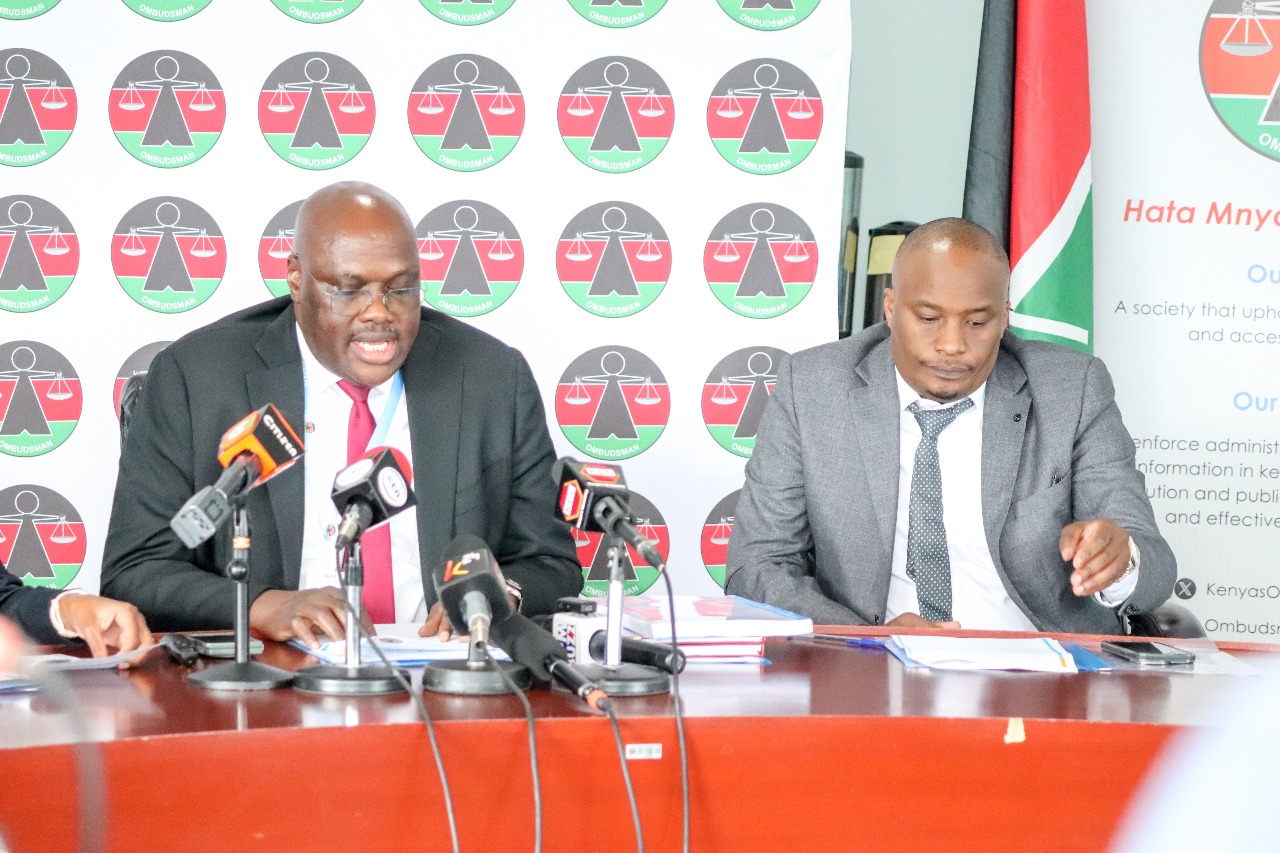
Ombudsman seeks clarity on six candidates added to IEBC list
The Commission on Administrative Justice, the Ombudsman, has given the panel responsible for selecting electoral commissioners seven days to clarify why six additional candidates were included in the list beyond the original selection.
In an inquiry letter, Commission Chairperson Charles Dulo requested Dr. Nelson Makanda, Chairperson of the Independent Electoral and Boundaries Commission (IEBC) selection panel, to address public concerns regarding the additional candidates for the commissioner positions.
The Commission’s inquiry was triggered by widespread public concerns expressed across various media platforms about the inclusion of six additional candidates: Hassan Noor Hassan, Jibril Maalim Mohamed, Michaels Ben Oliewo, Charles Kipyegon Mutai, Stephen Kibet Ngeno, and Joel Mwita Daniel, in the shortlist for the vacant positions of Chairperson and members of the IEBC, shortly before the scheduled interviews.
The Commission noted events from 14th March 2025, when the Selection Panel published a shortlist of 11 candidates for the Chairperson position and 105 candidates for the member positions. On the same day, the Panel provided an addendum featuring two additional candidates for the Chairperson role and 26 new candidates for member positions, but did not explain the reasons for this addendum, as stated by the Ombudsman.
“Subsequently, on 25th March, just days before the scheduled interviews, the Panel republished the list of shortlisted candidates for the position of members. This revised list included the original 105 candidates, the 26 candidates from the addendum, and an additional six names that had not previously appeared in any published list,” Dulo noted in his inquiry letter.
“In line with our constitutional mandate to promote good governance, adherence to the rule of law and in recognition of the MoU objects between CAJ and IEBC, the Commission draws attention to Articles 10,88, and 250 of the Constitution of Kenya, which govern the establishment, composition, and appointment processes of constitutional commissions, including the IEBC. These provisions emphasize the principles of transparency, accountability, fairness, integrity, and independence. Any deviation from these principles may amount to a violation of the Constitution,” he stated.
According to Dulo, the IEBC Act provides the legal and procedural framework that guides the appointment of commissioners, detailing the role and mandate of the Selection Panel, the selection criteria, and the structured steps to be followed during the appointment process.
“Any deviation from this prescribed procedure would constitute a breach of the IEBC Act,” he observed.
In the letter, the Ombudsman seeks an explanation for the circumstances or considerations that led to the inclusion of the six additional candidates, as well as the reasons for their initial omission from the original shortlist, given that these individuals were part of the initial pool of 1,356 applicants.
The Ombudsman also wants a description of the criteria and process used to select the six additional candidates, including an inquiry into whether these criteria were consistent with those applied during the initial shortlisting phase. Furthermore, a timeline indicating when the decision to include the six candidates was made, along with the authority under which their inclusion was approved, is also sought by the Commission.
Dulo further requested information on whether any public notice or formal communication was issued to explain the changes to the shortlist, and if not, the rationale for the lack of public disclosure. Additionally, he asked for all minutes, records, and documentation related to the decision to add the six candidates to the shortlist.
